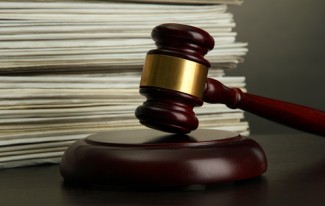Lawyer urges full 11th Circuit to release grand jury records of unsolved 1946 lynching

Image from Shutterstock.com.
A historian who researched the 1946 lynching of two black couples in Georgia is no longer alive to pursue his quest for grand jury records in the case. But a lawyer for his widow continued the fight in arguments before an en banc federal appeals court Tuesday.
Lawyer Joseph Bell represents Marion Pitch, the widow of historian Anthony Pitch, who wrote a 2016 book about the unsolved lynching at Moore’s Ford Bridge in Walton County. Bell argued that federal courts have inherent authority to unseal the grand jury records in cases of historical significance.
Courthouse News Service and the Associated Press have coverage.
Pitch died in June. His widow took his place in the litigation while another historian and author, Laura Wexler, intervened in the case at the family’s request.
Pitch had discovered during his book research that the grand jury transcripts are being held at the National Archives.
A Justice Department lawyer, Brad Hinshelwood, argued against release of the records.
The two black couples who were killed in the lynching were Roger and Dorothy Malcom and George and Mae Murray Dorsey. The couples were attacked by a mob while white farmer Loy Harrison was driving them home. Harrison had paid the bail of Roger Malcom, who had been jailed for the alleged stabbing of a white man. Harrison told authorities that he didn’t recognize any of the attackers.
The full court heard the case after a panel of the 11th U.S. Circuit Court of Appeals at Atlanta ruled 2-1 in February that the records could be released. The majority opinion by Judge Charles Wilson noted that the lynching had historical significance because of its ties to the civil rights movement. The opinion cited a 1984 11th Circuit opinion holding that courts may order the release of grand jury records in “exceptional circumstances.”
Wilson noted at oral arguments Tuesday that most grand jury records are destroyed after the passage of time, according to the coverage by Courthouse News Service.
“Only some are preserved in the National [Archives], right? If there are a select few records saved for history in the National Archives, it doesn’t make sense that historians wouldn’t be able to see them,” he said.
The AP reports, however, that Bell faced “tough questions” during arguments.
Even if Bell loses the case, there may be another way to obtain the records, some judges suggested during the arguments.
The Civil Rights Cold Case Records Collection Act, signed into law in January, creates a national archive of government records related to unsolved civil rights cases between 1940 and 1980. The law allows release of the records with the approval of a special review board.
Write a letter to the editor, share a story tip or update, or report an error.


